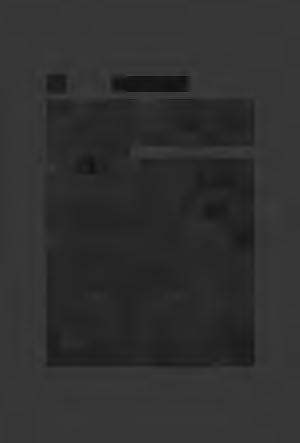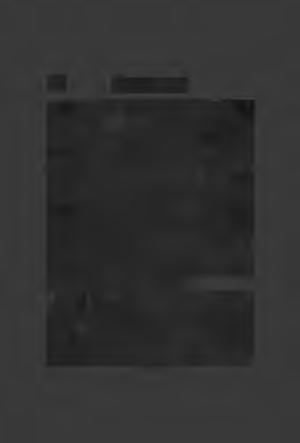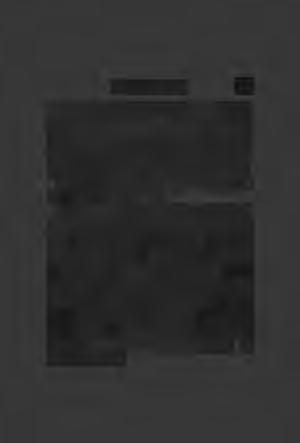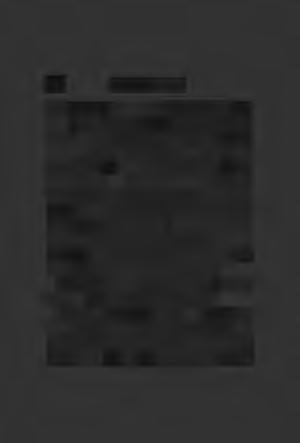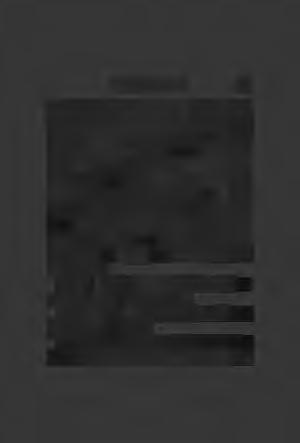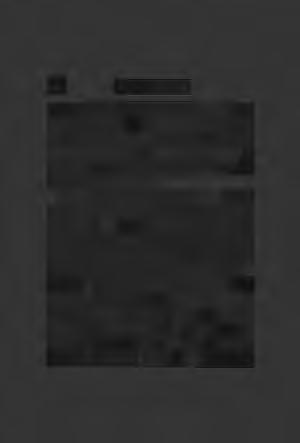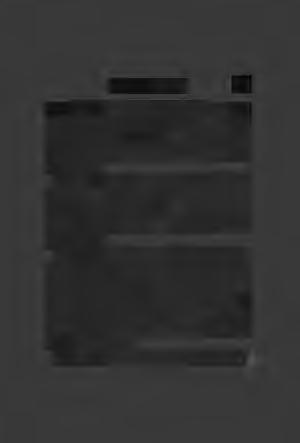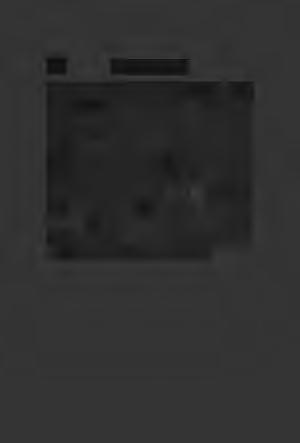KNOTTY POINTS.
BY .fAMBS M, TAYEOR, Evang,tzs,.
I. Kings 8: 46: ' If they sin against thee (for there is DJJ man that sinneth not.") The follow'ng is a qnotation from Dr. Adam Clark, the great Methodist commentator, who is generally accepted as authority. In this verse we observe that the second clause, as here translated, renders the supposition in the fi:i;st clause entirely nugatory; for if there be no man that sinneth not it is useless to say " if they sin against thee." But the contradiction is taken away by reference to the original, 11 Ki yecheta lach/' which should be translated: "if th,y shall or should sin against (vi
KNOTTY POIN'l'S,
thee,for there is no man that may not sin;" i.e., there is no man impeccable, none infallible, none that is not liable to transgress. This is the true meaning of the phrase in various parts of the Bible, and so our translators have understood the original; for even in the 31st verse of this chapter they have translated "yecheta" (here translated Jinneth not.) "..(/ a man trespass/' which certainly implies he may or may not, they have also translated it this way in Leviticus 5: 1 and 6: 2; I. Samuel 2: 25; IL Chronicles 6: 22, and in several other places.
This text has been a wonderful stronghold for all who believe there is no redemption from siil in this life; that no man can live without committing sin, and that we can not be entirely free from it until we die.
1. The text speaks no such doctrine. It only
speaks of the possibility of every man sinning, and this must be true of a state of probation.
2. There is not another text in the Divine Records that is more to the purpose than this.
3. The doctrine is flatly in opposition to the design of the gospel, for Jesus came to save his people from their sins, and destroy the works of the devil.
4. It is a dangerous and destructive doctrine, and should be blotted out of every Christian's creed. There are too IDjlny who are seeking to excuse their crime by all means in their power, and we need not embody their excuse in a creed to complete their deception by stating that their sins are excusable.
Dr. Clark's comments on the above are certainly enough to make it perfectly clear to all.
II. Chronicles 6: 36: This is Solomon's prayer
KNOTTY POINTS.
at the dedication of the temple; the same prayer is found in I. Kings 8: 46. The reader is referred to Dr. Adam C:ark's able explanation of that passage.
Job 4: 17-19: "Shall mortal man be more just than God ? shall a man be more pure than his Maker? Behold be put no trust in his servants; and his angels he charged with folly: How much less in them that dwell in houses of day, whose foundation is in the due , which are crushed before the moth ? ''
Job 15: 14-16: "Whatisman, thatheshonld be clean? and he which is born of a woman; that he should be righteous? Behold, he putteth no trust ill his saints; yea, the heavens are not clean in his sight. How much more· abominable and filthy is man, which drinketh iniquity like water?" While the Bible is inspired and true; we must re-
member that while it is a true account of good men and their right doings, it is also a true account of bad men, their lives and evil doings. We find by the heading of these chapters that these quotations are sayings of Eliphaz the Temanite; he tells us in Job 4: 13-16, he had a vision and a spirit told him the above. (" Try the spirits.") Are the assertions about God true or not?
Job 4: 18: "He put no trust in his servants; and charged his angels with folly." Do the Scriptures teach this? Job 15: 15 1 "Heavens are unclean." Why are they? God made them, '' putteth no trust in his saints.'' This contradicts such as: '' The secret of the Lord is with them that fear Him, and that we may dwell in the secret place of the most high.''
Job 15: 14: "What is man that he should ,be
KNOTTY POINTS,
dean? " But God says, "The blood cleanseth from all sin." Did Eliphaz tell Job the truth? He told things which do not ,rgree with other parts of the Bible.
Job 1: 1 and 8; 13: 4; 21: 34; 42: 7, 8. God said Job was perfect, and a perfect man can not lie on his fellow, yet Job said Eliphaz and the rest of his "miserable comforters" were liars. So we have a character whom a peifed qi.an says is a liar, having a vision and a spirit telling him things which contradicts the teachings of other parts of the Divine Record. God repeatedly said Job was a perfect man, and in referring to hi.s affiictions and trouble with his miserable comforters, He said in all this Job sinned not with his lips, and yet with his lips he declared Eliph~z to be a liar, and the Almighty adds force to the statement when He said in Job 42: 7, "Ye have

not spoken of me the thing that is right." The above character is our authority for the statements that '' The heavens are unclean," "He putteth no trust in his saints," ff What is man that he should be cleam?" While God says, "The secret of the Lord is with them that fear Him, and the blood of Jesus Christ his Son cleanseth U$ from all sin."' Our only explanation is, these are statements of a bad man contradicting God. "Man born lo sin as sparks fly upward."
Job 5: 7: "Yet man is born unto trouble, as the sparks fly upward.''
The above needs no explanation only that the real Scripture be read. It does not say, "Man is prone to sin, as the sparks fly upward," as it is often quoted, but born to trouble (or labor).
We may be holy and have trouble. This has been th~ experience of the saints of all ages.
Job 9: 20-22: '' If I justify myself, mine own mouth shar_condemn me: If I say, I am perfect, it shall also prove me perverse. Though I were perfect, yet would I not know my soul: I wonld despise my life. This is one thing, therefore I said it, he destroyeth the perfect and the wicked."
We must consider the circumstances under which Job is speaking, and about what he spoke. In chapter 8: 20, Bildad trying to make Job believe his affliction was a result of sin,,.told him God would not cast off a perfect man; that he is not perfect or he would not be afflic:t<::CLJob gives his answer in chapter 9: 15, '' Though I were righteous, yet would I not answer (bring it np as argument for not being afflicted), but make
KNOTTY PU.LNTS.
Id supplication to my judge." He continues as much as to say, if I use your argument, Bildad, that 11 He will not cast off (or afflict) the perfect,'' and claim my rerfection, I condemn myself, for here I am afflicted. But in verse 22 he settles the whole question: "This is one thing, therefore, I said it, He destroyeth the perfect and the wicked." Job knows this is true, for he ha:s God's testimony. Job 1: 1, and in other places, that he is "perfect and upright," and with the devil, Mrs. Job, and the miserable comforters (and other holiness fighters) all to the contrary. Job knows God is true. Amen! Therefore he contends that Bildad's argument will not doabont God not afflicting the perfect, for here he is afflicted, and God declares he is perfect.
Bildad's argnment is much akin to that of some teachers we have to~day, who declare to be sick is
KNOTTY POINTS.
a sure evidence of sin. Sickness, they say, is uot only indirect, but a direct result of sin. They, therefore, boldly declare that the only reason why one is not healed in answer to prayer, is that sin is being continued. Job's experience, with his testimony, that " God destroys the ' perfect and the wicked,' and God's declaration that Job, who was so sorely afflicted, was a perfect and upright man, and that in all his afflictions he sinned not, should bury forever the above teaching, and bring cheer and comfort to the thousands of sorely afflicted and suffering saints of God who have the testimony that they please God."
Job 11: 7: "Canst thou by searching find out God? canst thou find out the Almighty unto perfection?" Dr. Adam Clark says, in commenting on the above, which is often wrested by opposers of Christian perfection: "God is self-ex
KNOTTY POINTS.
istent, eternal, infinite, without boundsi incom• prehensible by mind, time or space. Who can find this being out? Who can fathom His depths, ascend to His heights, extend to His breadths, and comprehend the infinitude of His perfection.'
Job 14: 4: "Who can bring a clean thing out of an unclean ? Not one. ''
This refers to original sin; who can beget and bring into this world a child without the seed of sin, an evil nature, the carnal mind? Or bring a child into the world so free from the above that it needs not the cleansing blood; when it comes from unclean humanity, the posterity of fallen Adam and Eve; when by the sin of one there came condemnation upon all? Not one can. But thank God those who come of the unclean can be cleansed by the blood of Jesus. I. John 1 : 7. See Adam Clark.
KNOTTY POINTS.
Job 15: 14-16: For this the reader is referred to Joh 4: 17-19: This is explained there.
Job 25: 4-6: "How can a man be justified with God ? Or how can he be clean that is born of a woman? ''
11 Behold even to the moon, and it shineth not; yea, the stars are not pure in His sight. How rouch less man that is a worm? and the son of man which is a worm?"
The reader is referred to comment on Job 4: 17-19, as these are the words of one of those "miserable comforters." The first question might be answered, 11 by faith;" the next, "by the blood of Jesus. " As to the moon and stars not being pare, that is absurd, .for,they are as God 111Rdethem.
It is of great importance to remember that while the Bible is a true account of God's deal-
ings with man, and of the lives ot good men 1 it is also a true account of the lives of evil men.
God and Job (whom God said was perfect and did not sin) both declared Bildad, who spoke the above, was a liar, and did not speak the truth. It is absurd to accept the testimony of such a character, when God declares, "The blood of Jesus Christ his Son cleanseth us from all sin.''
Psalm 14: 3: "There is none that doeth good, no 1 not one."
Beginning with verse 1, '' The· fool hath -said in his heart there is no God," " they are corrupt, they have done abominable works ... there is none that doeth good'' among those fools who say there is no God. Verse 2. He looked to see if any did seek after God, and then He-says of the fool who declares there is no God, and those who do not seek after God,
KNOTTY POINTS.
"Among them there is non~ that doeth good. no, not one." Certainly not.
No one would be so foolish as to claim the above is spoken with reference to Christian people. No child of God would be willing to be classed with he who sa) s there is no God, who is corrupt and guilty of .abominable works. Not only so, but God declares that the class of whom He said," There is none that doeth good, no, not one," that they did not seek after God. The above can not be int<.":lli~entlyused in opposition to holiness 1 because it is spoken with reference to those deep in sin and impenitent.
Psalm 51: 5: "Behold, I was shapcn in iniquity; and 1n sin ct1d my motner conceive me."
Yes) we are concei7J~d1,n, sm: even nom the beginning of our existetir~ we have heP..nnaturally 'ii.nful, nut David found tbe remedy in verses 2
KNOTTY POIN'rS.
and 3, "Wash me thoroughly from mine iniquity and cleanse me from tny sin.'' After the '' blood cleanseth .from all sin," I. John 1: 7, there can be no more sin remaining.
Psalm 53: 1-3: "The fool hath said in his heart, there is no God. Corrupt are they, attd have done abominable iniquity: There is none that doeth good. God looked down from heaven upon the children of men, to see if there were any that did understand, that did seek after God. Every one of them is gone back: They are altoget:.er become filthy; there is none that doeth good, no, not one." At the head of this Psalm the reader will note the following-1 to 3-David described the corruption of the natural man. Here we have a partial r' oetition of the 14th Psalm. Notice this one lik it starts off with the fool who says there is no God. I know of no
KNOTTY POINTS.
Christian who wants to be classed under that head. He says of these, they are corrupt, gone back, done abominable works, and don't seek after God.
Psalm 119: 96: "I have seen an end of all per· fection."
Proverbs 20 : 9 : "Who can say, I have made my heart clean, I am pure from my sin?" "No one, but thousands can testify that the blood of Jesus Christ has cleansed them from all unrighteousness, and he is pure from all sin who.is.justified freely through the redemption that is in Jesus." Adam Clark.
Proverbs 24: 16: ''Fora just man falleth seven times, and riseth up again: but the wicked shall fall into mischief.''
Falling, in the Bible, does not always mean to fall into sin. James speaks of fall-"ng into temp-
tation. David says: 11 Let us now fall into the hand of the Lord; for his mercies are great; and let me not fall into the hand of man." Other places in the Bible where reference is made to falling, the following terms are used: "Falt into mischief," "Fall into a ditch," "Fall away/' "Fall into condemnation of the devil.'' We have many failings beside that of falling into sin. By a study of the context we see very clearly what falling is referred to. Verse 15: '' Lay not wait, 0 wicked man, against the dwelling of the righteous; spoil not his resting place." Then comes the text: 'r For a just man falleth seven times." It is very clear to the writer that it means just what the two texts show : Falling into the hands of the wicked. Dr. Clark says on this: "Gets very often into distress through his resting place being spoiled by the wicked man-the robber-
the spoiler of the desert lying in wait for this purpose." The reader will n0te that this does not read at all as it is generally quoted: "Falleth into sin seven times a day." The Bible has no such discouragement for the children of God.
Ecclesiastes 7: 16: 11 Be not righte-ous over much, neither make thyself over wise: why shouldest thou destroy thyself? ''
Those who advocate a '' sinning religion'' take much pleasure in quoting this with a serious and profound look; "we must not get too good," they say, Where is he of whom God can say thou art too righteous, with profit thou couldst sin a little? In verse 15, "All things have I seen in the days of my vanity;" £. e., in the days of his sin. He proceeded to say, " Be not righteous over much;" but remember he is speaking of the way he saw things in the days of his vanity. " Be
not so singular or too hard on those doing things not generally known as sin.'' Adam Clark.
The author would add : '' Don't be so straight that you lean over the other way."
Rev. L. L. Pickett says: "My conscience is given me not to run the world by, but for my own guide."
Ecclesiastes 7: 20: " For there is not a just man upon earth, that doeth good, and sinneth not."
The ground of this passage is fully covered in the commen'.s on I. Kings 8: 46. Dr. Adam Clark says it should be trJnslated, "No man that is not liable to sin."
Ecclesiastes 9: 3: ' ' Yea, also the heart of the sons of men is full of evil, and madness is in their heart while they live, and after that they go to the dead."
:t4 KNOTTY POINTS.
It does :!lot say, " The heart of the sons of God is full of evil." There is a great distinction in the Bible between " the sons of men," referring to sinners, and " the sons of God," referring to Christians. The above can not be said of the one who has a pure heart. Matthew 5: 8.
Isaiah 53: 6: "All we like sheep have gone astray; we have turned every one to his own way.''
True enough, we have all gone astray, but the great Shepherd is gone out to seek and to save that which was lost. Is He not able to find us, and after finding us, is He not able to bring us back? The remaining part of the verse says: "The Lord hath laid on him the iniquit'. of us all."
Jeremiah 17: 9: " The heart is deceitful a hove
all things, and desperately wicked: who can know it?"
This is a description of the natural or unregenerated heart before i+-'!las been renewed by the Holy Ghost. Who will dare say : '' Reform in your living, do good where you once done bad, and you will be all right," when God says your real nature is above all things most deceitful and desperately wicked. Things deceitful and desperately wicked don't go to heaven. But this verse can not be quoted as the experience of the pure in heart.
Matthew 6: 12: "Forgive us our dehts as we forgive our debtors."
11 Sin is the transgression of the law," but there is a sense in which all transgression of the law is not sin, because where there is no law there is no sin; in other words, when it is ignorance,
the atonement covers, and condemnation is not felt; as finite creatures we are continually falling into such, and should pray, ' 1 Forgive us our debts,'' etc. Again, this prayer is given for the church and not for the individual. We are to pray, forgive us, not me, our sins; pray for the whole body of Christians. 1'hird. 1'his verse seems to have a peculiar relation to the 14th and 15th verses: forgive us, etc., as we forgive---; for if you forgive not, neither will He forgive. It seems to be for the purpose of searching the heart as to how it is toward other people.
Matthew 19: 17: " Why callest thou me good? there is none good but one, that is, God."
This young man came to Jesus as a mere man, and not as God, so Jesus pointed him to the real fountain of all goodness. Our goodness is all as filthy rags. We of, or by ourselves, are not
KNOT1'Y POINTS.
good, buta!l undone. Goodness is from tbe word god, meaning Godlikeness, or goodness. This passage simply means there is only one with underived goodness, or only one source of goodness, that is, Go:i. All our goodness is from or by God. While man can not be good of or by himsdf, yet if God lives in him, then man is dead (Paul), aud Christ lives his li:e for him, then it must be a good life if God lives it. If the reader insists that there are none good, then we quote: "Bamabqs was a good man and filled with the Holy Ghost."
Luke 11 : 4. The reader is referred to the ex. planation given to Matthew 6: 12.
Romans 3: 10: "As i.t is written, there is none righteous, no, not one."
A good way to txplain this is for the reader to read on tbrn•r(h to the 18th verse, and find that
this people, among whom there were none righteous, no, not one, have the following unmistakable traits of outbroken sinners, "None seek.eth after God,'' verse 11; ''All gone out of the way,'' versel2; '' Throat an open sepulchre;'' ''Tongues use deceit;" verse 13; "Mouth full of cursing.'' verse 14; "Feet swift to shed blood," verse 15; '' Destruction and misery in their way,'' verse 16; "The way of peace have they not known," verse 17; ''No fear of God before their eyes,'' verse 18. The writer does not choose to class himself with this crowd. Again it says, ' 1As it is written." We find it is a quotation from Psalm 14. By reading these from which Paul is quoting, we find it is the infidel and those who have never known God. Reader, the Bible is a book to teach people how not lo sin, not a book teach ing us lo ,;,._
Romans 3: 12 : '' There is none that doeth good, no, not one.''
The explanation given to 3: 10, covers this as w1:.ll;£. e., it does not refer to Christian people at all, but to the most outbroken sinners.
Romans 5: 12: ''Forthatallhavesinned." It does not say all do sin, and for every sin of the past Jesus has died.
Romans the seventh chapter.
This has long been a battle-field for those who desire a Bible excuse for sinning. Who is the person represented in this chapter? It is either a Christian person, having a battle with carnality and living a rather up and down life, or it is a person struggling under the law before he has been made free by grace. Adam Clark says it is the latter, a man under the law. There is some .::trong argument in favor of this. The 0th verse
KNO'l'TY POINTS.
seems to show he had reached the years of accountability, and now he is without life. Then it looks like the life of a sinner doing the things he hates, etc. Then in verse 24 he says, '' 0 wretched man that I am." This does not seem like the life of a Christian.
Scores of others whose knowledge of the Greek and ability otherwise to comment on the Scriptures, says it is a man who has been regenerated, his sins forgiven, and now struggling against car~ nality, which is" enmity against God, is not subject to the law of God, neither indeed can be!'
Romans 8: 7. Verses 21-23 would indicate this very strongly. Here seems to be the mind of Christ and the carnal mind, the one warring against the other. Verse 17: " It is no more I, but sin that dwelleth in me.'' This can •hardly be said of a sinner. Verse 24: "0 wretched
man that I am.'' How many have not felt just this way since trying to war against the old evil nature within. Again he cries out in verse 24:
11 Who shall deliver me? '' Verse 25 takes him out of the seventh of Romans. In answer to the question, "Who shall deliver me?" here comes the answer, " I thank God through Jesus Christ our Lord.'' What for? Deliverance. The writer has been in that chapter two different times. He has felt wretched because of his past life of sin~ cried for deliverance, and was made to thank God for it " through Jesus ,.;hrist my Lord." Again, when struggling against carnality, and trying to be true to his vows, he has felt wretched and cried for deliverance, and was made to thank God for it through Jesus Christ my Lord, when Jesus, by His blood, sanctified me and destroyed the carnal mind. (Hebrew 13 : 12,
KNOTTY POINTS,
13). Whatever the first part of the chapter is to represent, one thing is certain, the 25th verse takes us out of it. Let the reader be careful never to say he is living in the 7th of Romans unless he can take the 25th verse in his experience.
Romans 8 : 8: ' 1 So then they that are in the flesh can not please God."
Greek scho1ars tell us that two words are translated flesh in the New Testament, one meaning our mortal bodies, the other meaning the carnal mind. That this verse does not refer to our bodies we readily see by referring to the 9th verse: '' Ye are not in the flesh (but they were living), but in the Spirit, if so be that the Spirit of God dwell in you." We find that the 8th verse is just a comment on the 7th, where he says: .u The carnal mind is enmity against God, .is not
E:><O'l'tt'V POINT$.
subject to the law of God,neitherindeed can be." Then he says: "So then they that are in the flesh (carnal mind) can not please God." It does not refer to not pleasing Him in this life, for here are people, he says, are not in the flesh, yet .they are living. Pant just teaches us the lesson many of us have learned by sad e,;perience; that with the carnal mind we are not able to live as G.od wants ns to; that we must be sanctified; have our hearts cleansed in order to live ,the justified life.
I. Corinthians 9: 27: "Bnt I .keep under ,ni;y body, and bring it into .subjection: lest tha.t by any means, when I have preached to others, I myself •should be a castaway."' People love to say, "Oh, if Paul had to keep,carnality under, I never expect to be delivered." We know this does not refer to the carnal mind, because.
XNO'l"l'Y POINTS,
1. Keeping under was not his way of dealing with carnality, for he said: 1 ' Knowing this, that our old man is crucified with him, that the body of sin might be destroyed, that henceforth we should not serve sin.'' (Romans 6 : 6.)
2. He did not speak of his " body of sin," carnal mind, etc., but my body. What is a man's body?
3. The body he speaks of he '' keeps it under and brings it into subjection," and he has jusr said in Romans 8 : 7, that the carnal mind can not be brought into subjection, for '' it £s not subject to the law of God, neither indeed can be." Our bodies have many appetites, passions, tastes, intellect, etc., which are God-given, and may be a ble3Sing to us and to the world, also glorify Godif they are II brought lnto subjection." But how many of us allow our bodies, through these

avenuesj to get away with us 1 and they master tis instead of us mastering them? The taste calls for something we know will make us sick if we eat it, but we do not keep under our bodies, or the taste calls for more of something than is for our good; to eat it means to be sluggish 1 sleepy, and not able to pray, study, etc. Sexual desires are all right. God says, '' Marriage is honorable in all, and the bed undefiled" (Hebrews 13: 4), although many good-meaning people cry sin, uncleanness, etc. But this God-given passion which might honor God, not being kept under, masters the man 1 makes a slave of both himself and wife, saps his mind and ruins him physically. The fact that a man says: c' I can not quit tobacco, must have my coffee, tea, etc., whatever his profession may be, or even whatever work of grace he may have had, shows he has not his ' body
KNOTTY POIN'f.S.
under subjection.'" Tobaccoisfilthy, useless and injurious, and no one should even think of using it; and tea and coffee should certainly be closely guarded and no appetite formed; the nerves so strung up and injured that the use of the stimulant is almost a necessity. Reader, by the grace of God let us, after our sins are forgiven and our hearts. cleansed, master our bodies ar declare we will keep them under.
I. Corinthians 15 : 31 : " I protest by your rejoicing which I have in Christ Jesus our Lord, I die daily." This is often quoted by some to prove that we are dying all the time to sin-carnalitybut that we are never entirely freed from it until death. (" It is a form of speech, for I am continually exposed todeath."-Adam Clark.) Paul had the Master's spirit. Everywhere he went he was continually exposed to death,. and in his heart
XNOT'l'Y POINTS. »q, he laid hi$ life down every day. May God !live us eacb a like spirit.
II. Corinthians 12: 7-10: "And lest I should be exalted, above measure through the abundance of the revelations, there was given to me a thorn in the flesh, a messenger of Satan to buffet me, lest I should be exalted above measure. For this thing I besought the Lord thrice, that it might depart from me. And he said unto me, my grace is sufficient for thee: for my strength is made perfect in weakness. Most gladly therefore will I rather glory in my infirmities, that the power of Christ may rest upon me. Therefore I take pleasure in infirmities, in reproaches,. in necessi:ties, in persecutions, in distresses for Christ's sake: for when I am weak, then am I strong;."
The ' ' thorn in the flesh '' is another great re. sort for those who covet the privile11:eof holdin&
S8 1':NOT'l.'Y POI'NTS.
on to some sin. \Vhy the devil has ever been able to hatch up so much on sin out of this passage we can not underst-and, for there is not the lea'Stintimation anywhere connected with it that it was sin. To begin with, Paul was here having one of the greatest experiences of his life; so it could not have been actual transgression; but they advance the argument that it was carnality. The Scriptures show it was not.
1. " Lest I should be exalted above measure . . . . there was given me a thorn in the flesh." Verse 7. It was something given him whiie having this experience; carnality we have frottt our beginning.
2. It was given him in his flesh; not in his spirit or soul. Any child knows it refers to a bodily affiiction. Sin is not in the flesh.
3. He besoni.ht the Lord three times to re-
POINTS.
move it. J,l:e simply told Paul " His grace was sufficient," and did not remove it. It can not be sin, for God says He can not look upon sin with the least degree of allowance~ this Helooked upon and allowed.
4. Verse 9 : '' My strength is made perfect in weakness." Not in sin, but in weakness. There is a great difference between sin and weakness. Then the Lord"s strength is certainly not made perfect in sin.
5. '' Most gladly, therefore, will I rather glory in my infirmities, that the power of Christ may rest upon me? He did not say he wonld glory in his ·sins or carnality, but infirmity. \Vhat is an infirmity? An affliction of the body is an infirm, ity, and Paul said his trouble was in his .flesh, and it was an infirmity.
6. Verse 10: "I take pleasure in infirmities.";
KNOTTY POINTS.
Not in sln, but i~rtnities. Reader, is there :any intimation that it was sin? Certainly Paul did not glory in sin. Now comes the question, what was the thorn in the flesh? We doubt if any one knows. Some say it was weak eyes, and various other infirmities are offered as being the trouble inflicted. As for the author, he cares very little for what it was, when it is settled that it was not sin. Too many souls are dying to spend time on hair-splitting theology such as, '' Where did Cain get his wife ? u etc.
Ephesians 4: 26: '' Be ye angry, and sin not.''
0 If we consider anger as.implying displeasure simply, there are multitndesof causesjn which a man .may be innocently, yea 1 !audibly angry."Arlam Clark.
"Anger
at sin is not evil;
but we shall
feel only pity and Jove to the sinner. If we are angry at
JICNOTTY POINTS.
the person, a• well as at the fault, we: oin. How hardly·we avoid it?"-John Wesley;
The above comments explain fnlly to the mmd of the writer this passage. Some people would be glad to find a Bible excuse for being mad, holding unkind or uncharitab'.e feelings, flying into a fit of anger, but the Holy Bible gives no such license. This plainly shows that we should have a holy displeasure with all sin and faults, both in ourselves and others, but havea burning love for the sinners who have sinned, even against us.
Philippians 3: 12: " Not as though I had already attained, either were already perfect."
In the 11th verse he says he is trying to at tain unto the resurrection of the dead, or out from among the dead. Then in the 12th verse hesayi lie·has not yet attained. neither is he aln:ady·per• fe&t;evidently referring to the perfectiou recei'Ri
~NO'I'TY POIN',fS.
·at -or by thB resurrection, which is physical and meutal perfection, ·' when this mortal shall put on immortality." In verse 15, he says all who are p,·rfecl shpuld be thus minded, to push on after this other resurrection and perfection which is held out for all who are perfect in love. This other perfection is only promised to tho! e who are perfect in love.
Revelations 20: G: "Blessed and holy 1s he that hath l art in the first: resurrection."
We may be morally perfect. perfect in lov~, and have many physical and mental imperfocttons.
Never read the 12th without the 15th.
:?hilippians 3: :! l : " Who shall chan12;eour vue body, that it may be fashioned like unto ms g10 rious body.''
Great effort has been made,to use th1s pai,sagt
AA6 .iocate ~bin body, amJ Uuid
til the resurrection, but we have God's word to the contrary, saying, "every sin is without the body." And as to this particular passage the Greek does not say vile body. The revised Version and Greek scholars tell us it should read, "bodies of humiliation." We will be subject to sickness and disease nntil our body shall be fashioned like unto His glorious body ( or His glorified body.)
I. Timothy 1 : 15: "This is a faithful saying, and worthy of all acceptation, that Christ Jesus came into the world to save sinners; of whom I am chief."
Paul does not here claim to be chief of the unsaved sinners; he says: "Christ came to save sinners, of whom (that is of those Christ saved) I am chief." Paul could have said Jesus came to sav-e the persecutors of the church, of ,;,_•~::,:T-I
4.4 J<NOTTY 'PO~NTS.
am chief; hut no one would have said that Paul was still persecuting the church. But of all persecutors of the church Jesus had saved, Paul was the greatest.
James 3: 2: "For in many things we ofiend all."
The revised version translates this, I< In many things we all strunble." Dr. Adam Clark also renders it as above, and says: "We may stumble and not fall or sin."
I. John 1 : 8: "If we say that we have no sin, we deceive ourselves, and the truth is not in us."
We have no right to read this and found our theology on it without reading the preceding and following verses, either of which, the 7th or 9th verses, give the 8th altogether another meaning.
Verse 7: " If we walk in the light, as he is in the tight, we have fellowship one with the other, and
POINTS,
the blood of Jesus Christ his Son cleanseth us from all sin.,: Sinners ate not walking in the light, but in darkness. It is the ·Christian who is in the light. We find there is a cleansing needed after we are in the light. John knew some would say: " I got it all in conversion," so he adds; "If we say we have no sin," after we are in-the light to be cleansed from, we deceive ourseb:es, and the truth is not in us; but he says the blood cleanseth from ALL sin. After this cleansing there is no sin, but before it, though we are His children, we have sin to be cleansed from.
I. John 2: 1: . '' ,If any man sin, we have an advocate with the Father, even Jesus Christ the righteous."
This last part of the verse is very eagerly torn from the first part and quoted, with, we fear, a sin-loving boast, as an excuse or op~ort.:mity for
KNOTTY POINTS.
sinning; bnt in the preceding sentence of this verse we are commanded, "Sin not." But that those who have received the cleansing spoken of in I. John 7: 9, may not gin upin despair if they do fall into sin, he says we have an advocate with the Father; but it must be one of the greatest of sins against God to presume on His long suffering and loving kindness, by saying: '' Oh, well, I =:an sin, for I have an advocate," etc. John says: "My little children, these things write I unto you that ye sin not." May our Christ grant ,.t unto the author and reader. Amen.

James Milburn Taylor was born July 27, 1873 in Blount County in Eastern Tennessee. In 1887, at a camp-meetng, Taylor experienced salvaton and became involved in the Methodist Episcopal Church, South. In January of 1895 he had his sanctfcaton experience and became a part of the Holiness Movement as an actve evangelist. He preached throughout Tennessee and Kentucky through the early 1900s, while making Knoxville, Tennessee his main center of operatons. He became associated with William Godbey and other Holiness fgures, publishing a number of booklets independently for his ministry. Many of these were published by H.C. Morrison’s Pentecostal Publishing Company.
In the early 1900s Taylor was involved with the Interdenominatonal Missionary Prayer League and the Holiness Union of the South, which helped sponsor Taylor on an evangelistc tour of the West Indies in 1906 and 1907. This included St. Thomas, St. Croix, Dominica, Antgua, Barbados, the Britsh Guianas, and Surinam among other islands, making him one of the pioneer missionaries of the English-speaking Caribbean. In 1912, Taylor, along with S. W. Edwards of the Holiness Union of the South did an evangelistc tour of Guatemala, El Salvador, Honduras, and Panama. This was one of the earliest Holiness missions to Central America. From January to June of 1914, Taylor did an evangelistc tour of South America including Panama, Colombia, Ecuador, Peru, Bolivia, and Chile.
By 1917, Taylor had become the Secretary for Missions of the Methodist Episcopal Church Board of Foreign Missions and made missionary tours to Mexico and Asia, including Japan, Korea, China, India, Malaysia, Burma, and the Philippines. In 1921 Taylor became president of Taylor University, a positon which he held for six months untl he lef under a scandal. Taylor then went on the Chautauqua circuit speaking about his many travels, at least tll 1926, before fnally disappearing from the pages of history.











